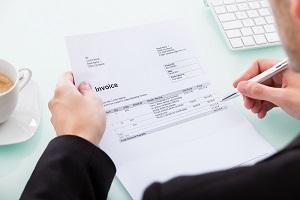False invoicing
Invoicing can be a huge logistical problem for businesses: with several customers potentially invoicing all at once, it can be tough to keep track of payments coming in and going out. Recently, there has been a rise in false invoices by both real and fake businesses.
Impact
If businesses don’t vet and check their invoice origins correctly, they can end up paying out for services they haven’t used which eats into revenue. If they then have to try and claw the money back, they can lose out on time doing so.
Prevention
If businesses track their invoices correctly by using unique purchase order numbers, they will know what invoices relate to what and they can ensure payments are going to the correct people. Vetting the invoices correctly and putting strict payment terms in place will be key.
Report it
- Fraud committed against Welsh businesses should be reported to Action Fraud, either online; or by calling 0300 123 2040.
- Action Fraud is the UK’s national fraud reporting centre where you should report fraud if you have been scammed or defrauded.
- Action Fraud provides a central point of contact for information about fraud and financially motivated internet crime. The service is run by the National Fraud Authority – the government agency that helps to co-ordinate the fight against fraud in the UK. Action Fraud work with partners in law enforcement - the National Fraud Intelligence Bureau, run by the City of London Police - to make sure your fraud reports reach the right place.
- When you report to Action Fraud you will receive a police crime reference number. Reports taken are passed to the police who may contact you for further information. Action Fraud does not investigate the cases and cannot advise you on the progress of a case.

